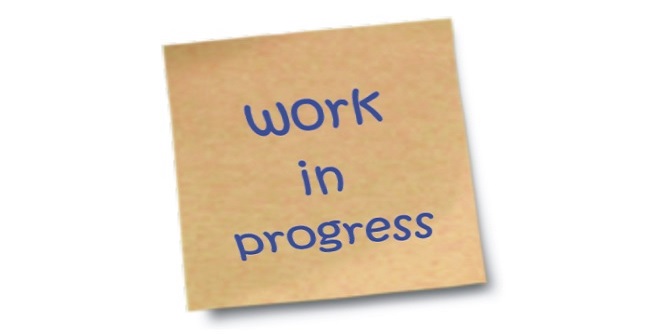To learn more about PhD career progression, we invited four LSE PhD alumni to speak about their experiences of finishing up and moving on to work beyond traditional academic roles. They told exciting stories from a variety of perspectives of people working in research, writing, and thought leadership in different sectors.
Having some ‘hutzpah’ was mentioned as a great way to approach moving on. The atmosphere was upbeat, good humoured and open. One of the participants described the speakers as a ‘group of mavericks’ and their points of view are worth sharing. The lessons can be drawn together in several themes:
- The first job is the hardest to get. The panel described using networks and friends’ suggestions to find vacancies and openings; one had had a spell volunteering to build knowledge and networks which resulted in a short contract and then a permanent post. Maintaining your LSE network was suggested as was using online resources and head-hunters sensibly.
- Really understanding what you want to do isn’t always obvious. We agreed that having a few high level criteria of what you want from the next phase of your life helped focus the job search process. Flexibility in enacting those criteria meant none of the speakers were unemployed for long.
- Think hard about what you want to do, but be flexible in the execution of your plans. By reviewing your progress to date, knowing your CV well (its strengths and weaknesses) you start to focus on what you want next.
- None of the speakers had specific job roles or organisations in mind at the beginning but gradually developed a sense of vocational identity through networking and making applications, and then through experience in work.
- Personal values and interests are very important but some will be more important than others. Priorities about these might be clear for you already, or might change, but pay attention to them. Other issues such as location, role, and type of organisation were important to some speakers. Becoming a migrant and moving country to achieve what you want was a common theme.
- Timing: managing the transition was not straightforward and deciding how to go about this was discussed. For some, being prepared early and applying while writing up worked but all found jobs after completing the PhD and the Viva.
- Moving between sectors, in and out of higher education or between charity, corporate and public sectors created a theme of ‘zig zagging’ to create a career pathway. This suited the speakers who all agreed that there was more flexibility and career progression open to them than they had anticipated.
- The importance of a polished application was highlighted. Spend time refining and preparing your CV, letter and other materials so that you only submit the very best – it may seem obvious but this was emphasised by our speakers as essential for success. They all took a lot of time with their applications, sought advice from others and practised their interview techniques thoroughly. Thankfully, the services of LSE Careers were appreciated by all three speakers!
- All the speakers are very happy in their current work but shared a view that their current position is not forever. Careers continue to progress which means thinking ahead, imagining new roles in the same or other organisations, and continually learning about the labour market that matters to you.
- The first post after the PhD is another stepping stone in a continually evolving career. What’s yours going to be? LSE Careers events and one-to-one appointments will help you plan (see below).
The speakers were:
- Ben Morris, PhD Government 2004 – Director, Infrastructure Advisory and Valuations at Mazars and previously Legal Specialist in Home Affairs Select Committee and National Audit Office. Ben is an infrastructure finance specialist, providing financial advisory and valuation services to funds, developers and lenders on transactions across Europe. His current role is at Mazars LLP – a top ten accounting and advisory firm based in nearly 80 countries. He has also worked at KPMG.
- Claudia Mollidor, PhD Social Psychology 2013 – Associate Director in the Social Research Institute at Ipsos MORI. In her current role, Claudia works within the Education, Children and Families team, but is regularly involved in projects of the Health team as well as the Evaluation and Policy Unit. Her main clients are the Department for Education and the Department for Communities and Local Government. Claudia’s work covers both large-scale longitudinal qualitative and quantitative studies (especially with children and vulnerable people) as well as smaller scale, shorter term projects. Claudia completed her PhD while working part-time in a research consultancy in Melbourne, Australia.
- Sasha Jesperson, PhD Government 2014 – is a Consultant in migration, organised crime and human trafficking. She has worked as a Director at Aktis and at St Mary’s University Twickenham, Centre for the Study of Modern Slavery and previously as Research Analyst in National Security and Resilience at RUSI. Sasha’s research focuses on the role of organised crime in facilitating human trafficking, and the potential of development in preventing trafficking. Before this Sasha was leading research on organised crime at the Royal United Services Institute, working closely with government departments to ensure that research is useful for strengthening policymaking on organised crime. Since completing her PhD she has been seeking to shape the policy agenda through her research.
- Donna Baillie, PhD Social Psychology 2016 – Donna is a senior consultant specialising in user research for the public and third sectors. Her clients include the Ministry of Justice, the Department for International Trade, and the Department for Business, Energy, and Industrial Strategy.
One-to-one appointments and further information
These can be booked using CareerHub and can be face-to-face or Skype or ‘phone meetings. Careers information, vacancy sources and advice is all on the LSE Careers website – let us know if you need help navigating!
Vacancies and employer information are on CareerHub which you can also search on. Further information is in our PhD Careers termly newsletter (careers news, events and jobs) and this PhD careers blog.






1 Comments